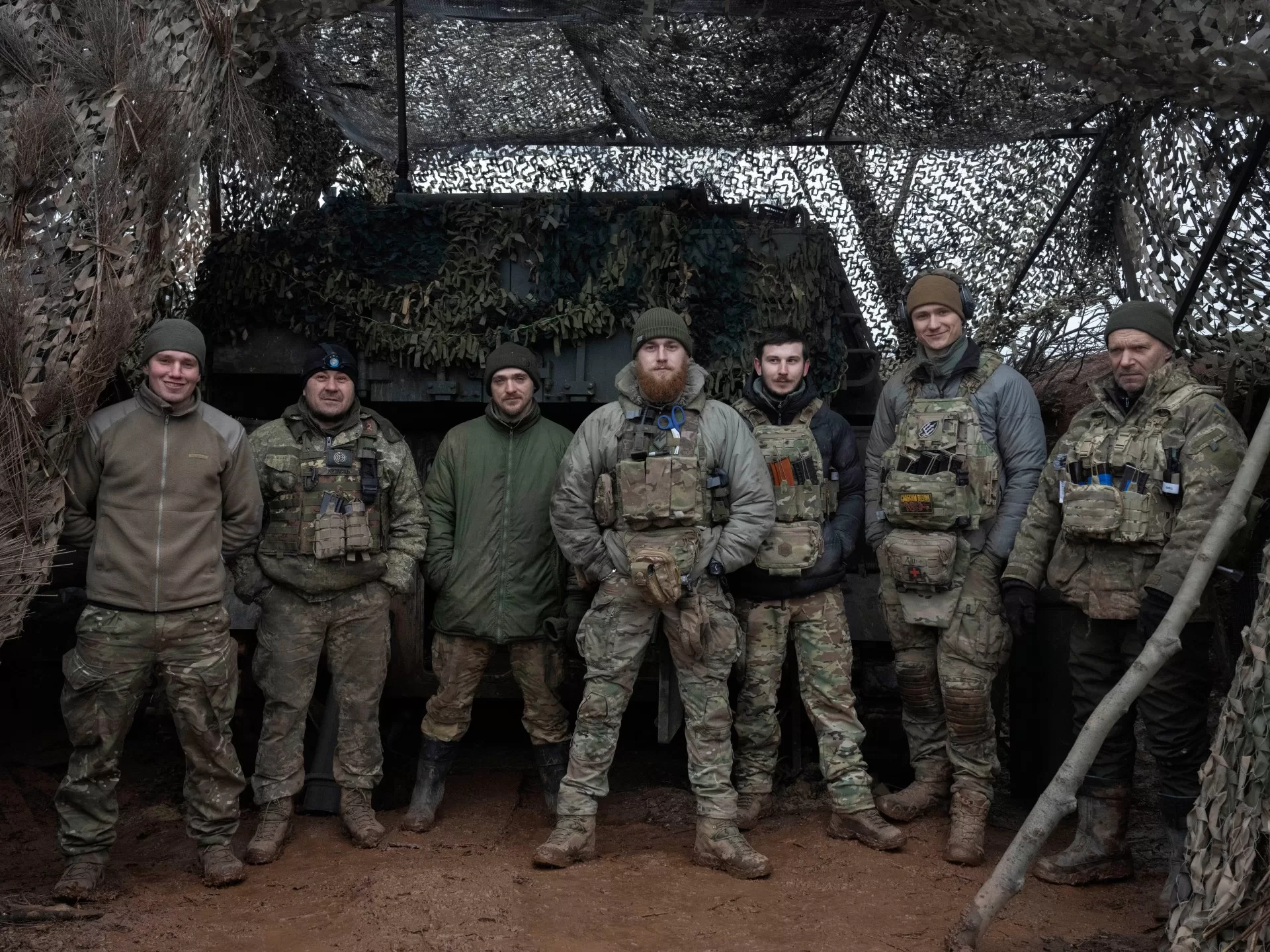Washington says ‘no evidence’ of abuses in unit, which was originally set up as a volunteer force in 2014.
The US State Department said in a statement on Tuesday that there had been a “thorough review” of the current Azov brigade and “no evidence” of human rights violations had been found.
Washington stressed the current unit was different from the volunteer militia that was set up in 2014, drawing fighters from far-right circles and criticism for some of its tactics. The US had banned the regiment from using its weapons, citing the neo-Nazi ideology of some of its founders.
“This is a new page in the history of our brigade,” Azov said of the US decision in a statement on social media. “Obtaining Western weapons and training from the United States will not only increase the combat ability of Azov, but most importantly, contribute to the preservation of the lives and the health of personnel.”
The Azov brigade, which was absorbed into Ukraine’s National Guard as the 12th Special Forces Brigade, is among the country’s most effective and popular fighting units and its current members reject accusations of extremism and any ties with far-right movements. Washington said that the original militia had been “disbanded in 2015” and a State Department spokesman also noted Azov’s “heroic role” in the 2022 battle for Mariupol.
The lifting of the ban is likely to bolster the brigade’s fighting capacity at a challenging time during the war against Russia’s invasion, with Ukraine struggling amid persistent shortages of ammunition and personnel.
Azov soldiers played a key part in the defence of Mariupol, holding out for weeks in the Black Sea port city’s vast steel works despite being low on ammunition and under relentless attack from Russian forces.
The city fell to Russia in May 2022, but Azov’s soldiers have been hailed as heroes, becoming a symbol of Ukrainian resistance in the face of Russian aggression. Each week, there are rallies calling for the release of hundreds of Azov POWs who remain in Russian captivity.
Moscow has repeatedly portrayed the Azov as a Nazi group and accused it of atrocities, but has provided little evidence to support its allegations. It designated the unit a terrorist group in 2022.
“Such a sudden change in Washington’s position shows that it will do anything to suppress Russia… even flirting with neo-Nazis,” said Kremlin spokesman Dmitry Peskov.
The brigade grew out of a group called the Azov Battalion, one of many volunteer regiments established to fight Russia-backed separatists in eastern Ukraine. Years before Russia’s full-scale invasion of Ukraine, Human Rights Watch raised concerns about Azov, writing that credible allegations of egregious abuses had been made against its fighters.
Since its first commander left in October 2014, Azov has been “cleansing itself” of undesirable elements, according to its website. It has also tried to recast its public image to that of an effective and skilful fighting force, and has shunned connections with controversial figures.
